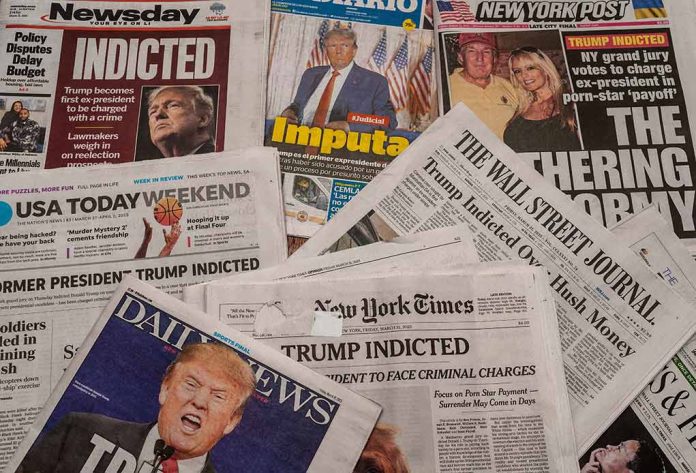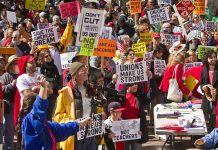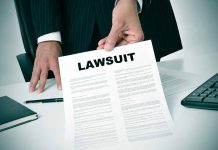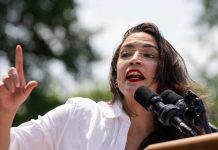
A New York Supreme Court decision halts Donald Trump’s hush-money case sentencing, impacting legal proceedings and stirring political tensions.
At a Glance
- Trump’s sentencing has been delayed until November 26 by New York Supreme Court Judge Juan Merchan.
- The judge’s decision allows Trump’s attorneys time for an appeal on presidential immunity.
- The Supreme Court ruling influences the case by broadening presidential immunity.
- The case remains complicated by Trump’s presidential election and political factors.
Details of the Judicial Decision
New York Supreme Court Justice Juan Merchan has deferred the sentencing of Donald Trump until November 26. This stay affects all deadlines related to his current hush-money case. The decision comes amid arguments from Trump’s legal team that more time is needed to appeal a ruling concerning presidential immunity.
Judge Merchan cited the need for justice to take precedence, stating, “This is not a decision this Court makes lightly but it is the decision which in this Court’s view, best advances the interests of justice.”
The Supreme Court ruling, which broadens presidential immunity, has been a pivotal factor in this delay. The court has ruled that Trump cannot face criminal liability for many actions conducted during his presidency. This development has sparked debate over presidential powers and their limits, drawing both support and criticism from various political factions.
Implications for Legal and Political Landscape
The Manhattan District Attorney’s office, under Alvin Bragg’s leadership, agreed to the adjournment, though they remain prepared for proceedings on any future date. Trump’s legal team argues that a rapid resolution isn’t warranted, as the stakes are too high. The sentence delay, following an already postponed date earlier this year, complicates pending legal and political matters regarding Trump’s former presidency and his future role.
The election has added another layer of complexity, as a guilty verdict could have influenced public opinion. However, Trump has labeled this case a “witch hunt,” insisting on his innocence. His demeanor and response hint that this legal challenge is as much a battle in the public arena as it is within the courts. The judge’s decision to keep the sentencing hearing on course free from election distractions underscores the multifaceted nature of these legal proceedings.
Ongoing Legal Battles
The broader implications of this immunity ruling underscore the complexity of charging a president. Trump’s defense mentions the need for evidence exclusions due to its ties to presidential duties, though these offenses predate his term. This case is one among several Trump faces, though it’s the only one to have proceeded to trial thus far. With this latest development, the conversation around presidential immunity and accountability is poised to continue.
“Although we believe [the] defendant’s arguments to be without merit, we do not oppose his request for leave to file and his putative request to adjourn sentencing pending determination of his motion,” assistant district attorney Joshua Steinglass has said in response to the request.
These proceedings have led to both criticism and defense from political leaders, including Joe Biden and Trump himself. For Trump and his supporters, the case is emblematic of a broader debate over the scope of presidential power and the need for fair legal treatment, especially for those who have served as commander-in-chief. The outcome of this case will shape future understandings of accountability and protection for those entrusted with the nation’s highest office.














